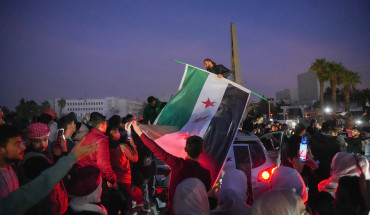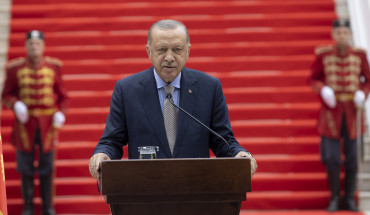British Prime Minister Theresa May’s remarks at the Gulf Cooperation Council summit about the need to “push back against Iran’s aggressive” actions in the Middle East have provoked angry reactions and threats from Iranian leaders.
Speaking to leaders of the G.C.C. states in Bahrain, May said she was “clear-eyed” about Iran’s destabilizing role in the region, and emphasized that the United Kingdom wanted to “make a more permanent and more enduring commitment to the long-term security of the Gulf” – including about $3.8 billion in defense spending in the region over the next decade. She also called for closer trade ties between the United Kingdom and the G.C.C countries.
Iranian leaders and media outlets interpreted May’s comments as part of Great Britain’s efforts to reassert its role in the Middle East.
Bahram Qassemi, Iran’s foreign ministry spokesman, said the United Kingdom “has yet again resorted to divisive policies to return to the region” – an approach he called “counterproductive.”
Alaeddin Boroujerdi, chairman of the Iranian Parliament’s National Security and Foreign Policy Committee, warned that the parliament might consider downgrading diplomatic ties with the United Kingdom. “The British prime minister’s remarks are not compatible with ambassador-level relations,” he opined. Tehran and London restored full diplomatic relations in September. The two countries had recalled their ambassadors in 2011 after Iranian paramilitary forces stormed the British embassy in Tehran.
A lengthy analysis in Tabnak, a website affiliated with former head of the Islamic Revolution Guards Corps Mohsen Rezaei, reasoned that President-elect Donald Trump’s likely isolationist foreign policy would create a vacuum in the Middle East and allow other global actors such as the United Kingdom to step in. The article also noted that Great Britain wanted to sell more arms to G.C.C. states to offset potential economic losses from the country’s exit from the European Union.
The front-page editorial of Kayhan, an ultra-conservative newspaper whose editor-in-chief is appointed by Supreme Leader Ali Khamenei, criticized the government of President Hassan Rouhani for signing an energy deal on December 7 with the Royal Dutch Shell, ignoring the Britain’s hostile policies toward Iran. The article also questioned the government’s wisdom to rely on European powers to pressure the incoming Trump administration into remaining committed to the 2015 Iran nuclear deal.
The Middle East Institute (MEI) is an independent, non-partisan, non-for-profit, educational organization. It does not engage in advocacy and its scholars’ opinions are their own. MEI welcomes financial donations, but retains sole editorial control over its work and its publications reflect only the authors’ views. For a listing of MEI donors, please click here.












